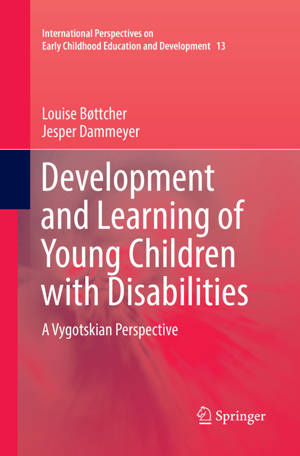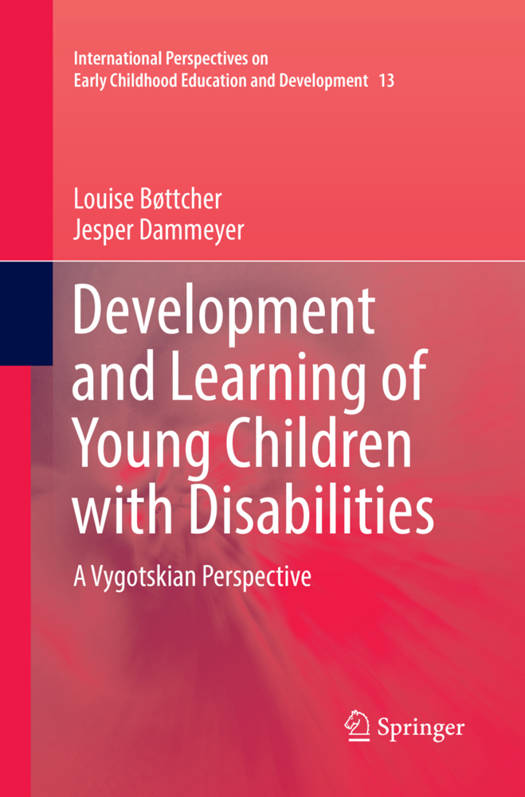
- Afhalen na 1 uur in een winkel met voorraad
- Gratis thuislevering in België vanaf € 30
- Ruim aanbod met 7 miljoen producten
- Afhalen na 1 uur in een winkel met voorraad
- Gratis thuislevering in België vanaf € 30
- Ruim aanbod met 7 miljoen producten
Zoeken
Development and Learning of Young Children with Disabilities
A Vygotskian Perspective
Louise Bøttcher, Jesper Dammeyer
€ 126,95
+ 253 punten
Uitvoering
Omschrijving
This book introduces current theories and research on disability, and builds on the premise that disability has to be understood from the dialectical dynamics of biology, psychology, and culture over time. Based on the newest empirical research on children with disabilities, the book overcomes the limitations of the medical and social models of disability by arguing for a dialectical biopsychosocial model. The proposed model builds on Vygotsky's cultural-historical ideas of developmental incongruence, implying that the disability emerges from the misfit between individual abilities and the cultural-historical activity settings in which the child with impairments participates. The book is a theoretical contribution to an updated understanding of disability from a psychological and educational perspective. It focuses on the first years of the life of the child with impairment, and travels through infancy, toddler, preschool and early school age, to track the developmental trajectories ofdisability through the dialectical processes of cultural, social, individual, and biological processes. It discusses a number of themes that are relevant for the early development and support for children with various types and degrees of disability through the lens of Vygotsky's cultural-historical developmental theories. Some of the themes discussed are inclusion, mental health, communication, aids and family life.
Specificaties
Betrokkenen
- Auteur(s):
- Uitgeverij:
Inhoud
- Aantal bladzijden:
- 212
- Taal:
- Engels
- Reeks:
- Reeksnummer:
- nr. 13
Eigenschappen
- Productcode (EAN):
- 9783319818207
- Verschijningsdatum:
- 7/06/2018
- Uitvoering:
- Paperback
- Formaat:
- Trade paperback (VS)
- Afmetingen:
- 156 mm x 234 mm
- Gewicht:
- 326 g

Alleen bij Standaard Boekhandel
+ 253 punten op je klantenkaart van Standaard Boekhandel
Beoordelingen
We publiceren alleen reviews die voldoen aan de voorwaarden voor reviews. Bekijk onze voorwaarden voor reviews.











